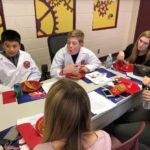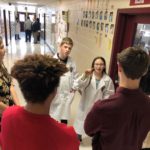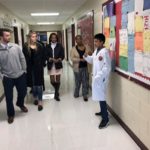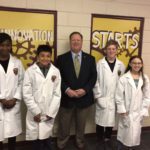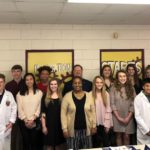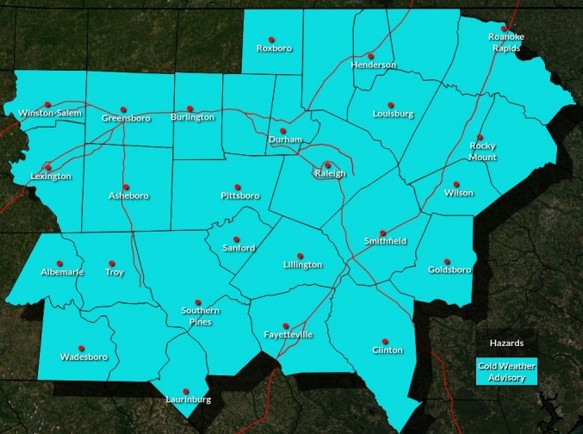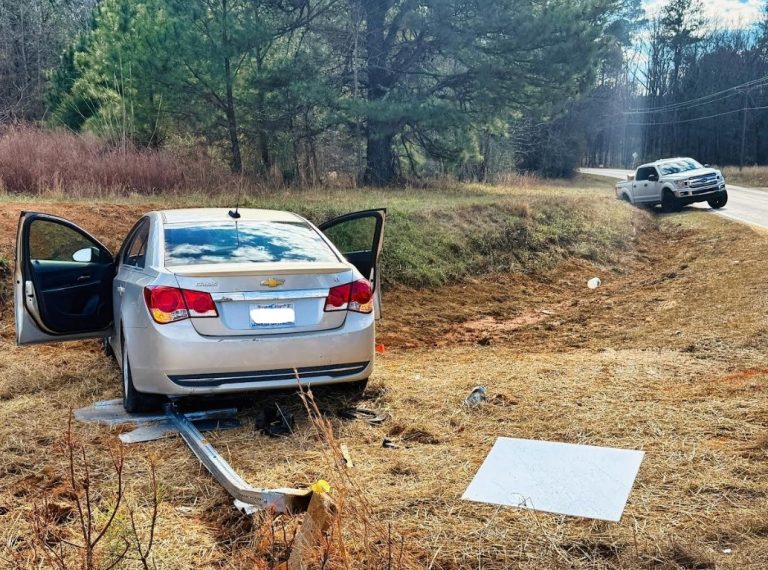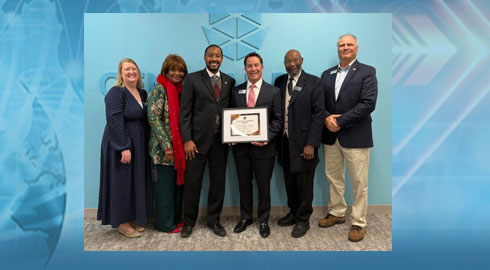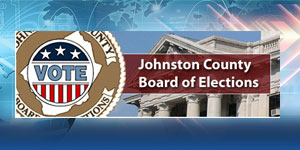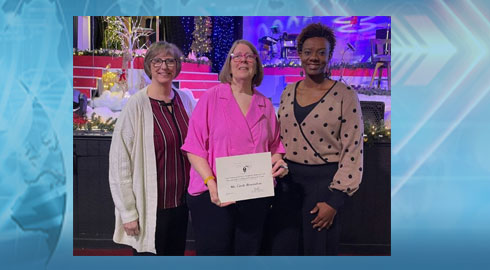Innovation Academy Pioneer Ambassadors, Superintendent’s Student Leaders Discuss Personalized Learning
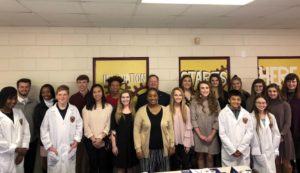 Student ambassadors at the Innovation Academy at South Campus (IASC) in Smithfield hosted the Superintendent’s Student Leaders last week to converse about the tenets of JOCO 2020 and how they are brought to life in the lab school environment.
Student ambassadors at the Innovation Academy at South Campus (IASC) in Smithfield hosted the Superintendent’s Student Leaders last week to converse about the tenets of JOCO 2020 and how they are brought to life in the lab school environment.
JOCO 2020 is the Johnston County Public Schools’ teaching and learning initiative that allows students and teachers to personalize instruction and learning based on the tenets of relationships, relevance, and innovation. Opened in 2017, the Innovation Academy at South Campus middle school is the laboratory school of Johnston County Public Schools where innovative approaches to education are based on the tenets of the JOCO 2020 Strategic Plan as well as best practices for 21st century teaching and learning.
The Student Leaders–who meet regularly with Dr. Ross Renfrow, district Superintendent, to discuss current and emerging issues–visited the Academy with Dr. Renfrow to interact with the Academy’s Pioneer Ambassadors about personalized teaching and learning. The Ambassadors led a tour of the school, hosted lunch, and answered questions about their experiences at the school.
Angelin Smith-Mejias is a second-year Pioneer at the Innovation Academy who says personalized learning is what sets the lab school apart from the traditional setting.
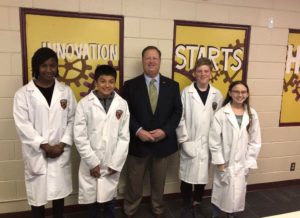 “You feel like your own teacher. It’s actually really fun. We’re actually allowed to have those opportunities, which is different from traditional.”
“You feel like your own teacher. It’s actually really fun. We’re actually allowed to have those opportunities, which is different from traditional.”
And while your pace is your own, Eyonna Horton adds that students help each other and mastery of subject matter gives students the chance to teach others what they know. “You have more teachers in the classrooms than you have students.”
This creates a safe learning environment and puts less emphasis on the traditional mindset that testing is the only way to measure understanding.
“Whenever I heard the word test, my mind blows,” said Angelin. “This year, I still worry about my future, but I don’t think I’ve mentioned EOGs. I still sometimes get a little nervous and my teachers tell me not to worry, that I’ll do well. And I trust my teachers because I have a relationship with them.”
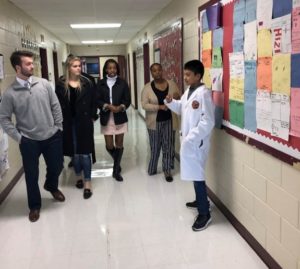 Principal Kelley Johnson, the lead learner at the Innovation Academy, expounds upon that notion.
Principal Kelley Johnson, the lead learner at the Innovation Academy, expounds upon that notion.
“Proficiency is a data point, it is not the stake on which we judge their value as students. We don’t teach standards. We teach people standards– a very slight innuendo but an important one. We help students reach them (standards) from their access point. You have to train your brain to not be fearful and focus on your training and perform.”
Johnson said the Academy parent and student community is educated about growth.
“As long as they grow, we are absolutely satisfied and thrilled about that. This is a little bit of an undoing. The value of testing is so ingrained. What I say is, ‘You’re amazing before the test, and you’ll be amazing after the test.’ This social and emotional aspect is important. Lean in on your own learning. Testing is not the only or the most important thing. It’s a data point, something worth looking at. Your body of work tells the full story.”
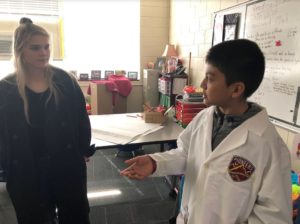 Pioneer Ambassador Peyton Bednar attests to the importance of relationship-building. “Relationships help you with innovation because if you form good relationships, you can accomplish more as a group, as a team. We can be more of ourselves and choose how we learn. They (teachers and staff) find a way to make us succeed no matter what.” But that responsibility rests with all Pioneers, staff or student, said Peyton. “You’re here to make it better, to make it a good place.”
Pioneer Ambassador Peyton Bednar attests to the importance of relationship-building. “Relationships help you with innovation because if you form good relationships, you can accomplish more as a group, as a team. We can be more of ourselves and choose how we learn. They (teachers and staff) find a way to make us succeed no matter what.” But that responsibility rests with all Pioneers, staff or student, said Peyton. “You’re here to make it better, to make it a good place.”
The Ambassadors fielded questions and shared their personal experiences relative to the tenets of relationships, relevance, and innovation.
Angelin said relationships are key. “You have to open up to the world and find someone else. I’ve made so many friends here and developed so many relationships to help each other,” she said. We build the ability to adapt to different things here,” said Angelin.
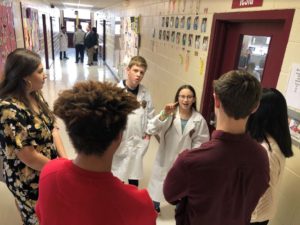 When asked what their work looks like, the Ambassadors told of personalized experiences one after the other.
When asked what their work looks like, the Ambassadors told of personalized experiences one after the other.
Edgar Franco told of a survey the students took that asked them how they like to learn. “It’s a very flexible environment here,” he said.
Angelin said although she likes technology, she prefers pen and paper so the teacher provides a paper version of the lesson.
Dr. Renfrow gave his Student Leaders a call to action: “Go back and plant the seeds for change in your schools. Have a conversation with your teachers, your peers. Dare to be bold enough to share ideas about continuous improvement in your schools. Good teaching and learning is good teaching and learning wherever you are. It starts with relationships, includes relevance, and demands innovation.
The high school student leaders felt their time was well spent.
“Personalized learning is super important and being able to have your passion and express it while still learning without having to minimize your passion, goes hand in hand. Seeing that in action was a really good experience,” said Seth Marbry, Student Body Vice President at Early College Academy.
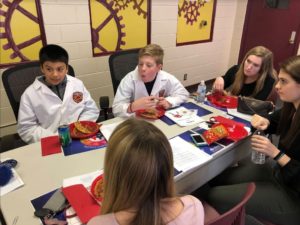 Holley Bruske, North Johnston High School Student Leader was inspired. “I truly love it here. One day when I have a child, I would love to have him here. These students can speak! That’s what blows me away. That’s something that I truly admire.”
Holley Bruske, North Johnston High School Student Leader was inspired. “I truly love it here. One day when I have a child, I would love to have him here. These students can speak! That’s what blows me away. That’s something that I truly admire.”
The peer-to-peer visit was designed to build relationships, promote ambassadorship and leadership, and grow awareness about JOCO 2020’s pervasiveness throughout the county.
“We’re growing future leaders,” said Renfrow.
Discover more from JoCo Report
Subscribe to get the latest posts sent to your email.





